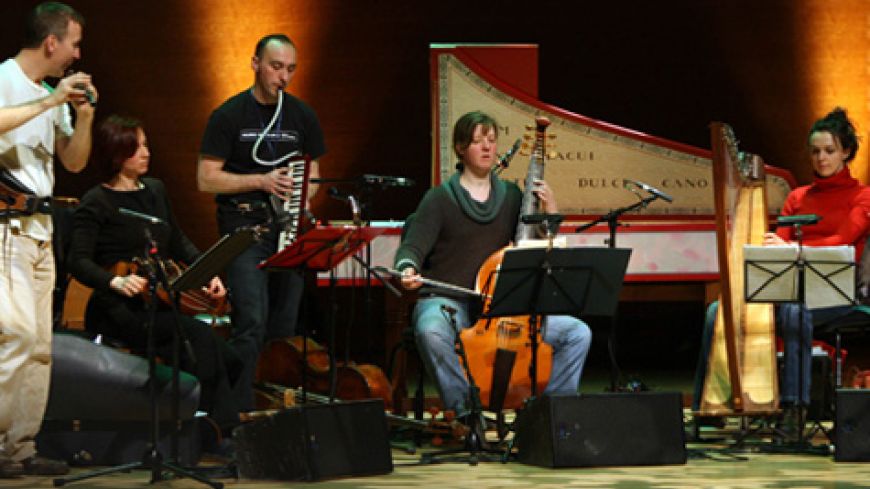
Under the big blue bosses of the Hub's, fine yellow blue and red ceiling (sadly hidden to accommodate theatre lighting) the audience gathered for a terpsichorean evening with Scotland's early music group, Concerto Caledonia. Their aim was to "present...tunes from the world of Scottish dance music before the fiddle took over."
To a slow, steady rhythm, two strolling players joined the seated six that formed the night's dance band, in the modest words of director David McGuiness "‘to play some tunes". Over the evening, music was played from as far back as 1569 through to 1785.
This covered the lifetime of Burns, a keen dancer who attended one of the local dancing schools in his youth. Much of the music played was rightly suitable for the courtyard of Holyrood Palace and the audience was treated to what started as a courtly dance by Steve Player. This developed to fancy leaps and pirouettes which accounted for the dancer being male, as the dresses of the day would never have accommodated such manoeuvres.
In fact we were told that in Glasgow in 1699 there were strictly separate dancing classes for the sexes but whether they were taught the same steps is a matter of conjecture. Unfortunately, because of the flat seating arrangement at The Hub, the dancer's footwork was invisible to most of audience, and all that could be seen was a bobbing figure from the waist up, although some of the Scottish Step's stamping style could be heard. Surely this was an opportunity to use either more imaginative seating or to allow the dancer to be seen in a different way?
Adew Dundie (1620) was a fine fast waltz done in a gallus swing style and The Scots Chaconne (1695) was fun but over all it was disappointing that this highly talented group did not manage a symbiotic relationship with their audience, something I have come to expect at a dance music concert. It was like watching an esoteric club that happened to be on stage having great fun in front of a polite restrained audience that even the energetic fiddling of David Greenberg didn't get going. Mind you, they were still clapping when I left.
Times: 22 August only

